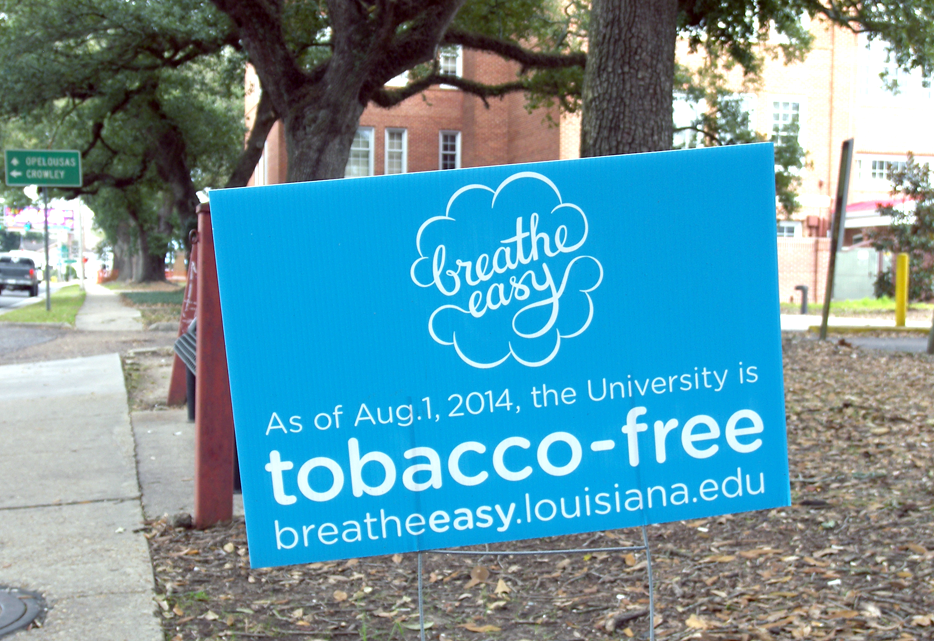The University of Louisiana at Lafayette’s tobacco-free policy is proving effective six months after its implementation, according to a recent survey of the University community.
Last month, over 1,700 students, faculty and staff members responded to a campus-wide survey by the University’s tobacco-free working group.
Of the respondents, 80 percent indicated that the policy has been very effective (39%) or somewhat effective (41%) in reducing second hand smoke exposure on campus. Only 20 percent responded that the policy was ineffective.
“It’s promising that second hand smoke has been practically removed from campus since this policy went into effect and that some people are quitting tobacco,” said Joey Pons, associate director of Public Safety at UL Lafayette.
A total of 44 survey respondents stated that they quit tobacco in 2014.
“It’s hard to determine whether people quit directly or indirectly as a result of the policy,” said Pons.
But, one student respondent wrote in a survey response, "I quit chewing tobacco at school because of the policy. In turn, I have stopped altogether! Thanks."
After a six-month review, Pons said that the working group decided that policy revisions are not needed.
“We received feedback asking for more enforcement,” he said. “To improve compliance, we updated campus maps to better indicate the tobacco-free zones and we will add more signs on campus.”
The working group also monitored data from other schools. As of October 2014, at least 1,014 U.S. universities were tobacco-free, according to the American Nonsmokers’ Rights Foundation.
The number of universities that prohibit e-cigarettes jumped from 167 in April to 587 in October.
“We’re not banning e-cigarettes as of now, other than the policy prohibits use of them indoors,” Pons said. “We’re keeping an eye on what federal health officials have to say about their use.”
The university tobacco-free working group proposed the campus policy last summer after weighing comments from students, faculty members and staff and reviewing other universities’ policies. The university had been required to establish a policy by Aug. 1, 2014, to conform to state law.
“We appreciate everyone’s support to comply with the policy and continue to encourage politeness when asking those who aren’t complying to do so,” said Pons.
For maps and more information, visit breatheeasy.louisiana.edu.
